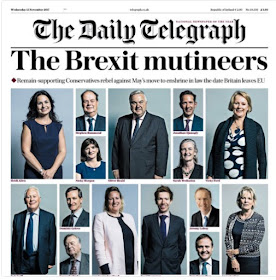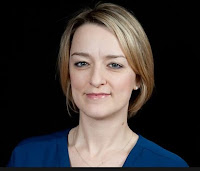Thomas Hughes executive director of Article 19 in the Guardian: "The safety situation is getting steadily worse worldwide. Journalists face not only censorship, but also physical danger, ranging from threats, attempted or actual assaults, abductions, disappearances and murder."
The Committee to Protect Journalists on Twitter: CPJ@pressfreedom: "A record 262 journalists were jailed worldwide on December 1, 2017, with #Turkey, #China, and #Egypt accounting for over 51% of the total. Nearly three-quarters of all jailed journalists face anti-state charges." #FreeThePress
Peter Preston in the Observer: "'Global media freedom is at its lowest level since the start of the century' the report (from Index on Censorship) said. And so to that other presidential tweet of the week. “@FoxNews is MUCH more important in the United States than CNN, but outside of the US, CNN International is still a major source of (Fake) news, and they represent our Nation to the WORLD very poorly. The outside world does not see the truth from them!” Doesn’t Donald Trump – even Donald Trump – realise that he invites more persecution this way? That’s he’s a malignant pustule on the scarred face of democracy?"
NUJ general secretary Michelle Stanistreet in a statement after it was revealed offshore company Appelby was taking legal against the BBC and the Guardian over the leaked Paradise Papers: “This is an outrageous and cynical manoeuvre that should be condemned internationally. Wealthy corporate interests attacking the right to report is not new. It is also typical of corporations to use their financial muscle to try and bully individual media outlets in the hope that they will frighten all who seek the truth. The response of all journalists should be that we will not allow this to succeed."
Society of Editors executive director Ian Murray after Pizza Hut apologised for an advertising promotion in the Sun on Sunday: “Obviously, advertisers can decide where they wish to spend their money and which publications they wish to support, but what we are seeing here are what appear to be concerted, organised campaigns against just some newspapers by pressure groups. In a free society it is imperative that voices are heard from across the political spectrum. By attacking advertisers who support just one side of the debate in an attempt to force publications out of business is dangerous for free speech and democracy.”
Laura Davison, NUJ national organiser, in a statement on plans by BuzzFeed to cut 24 journalists' jobs in London: "As the union is currently battling with redundancies across local newspaper groups such as Newsquest, it is deeply worrying to see such a trail-blazing digital enterprise to be in such trouble. It has sent a chill throughout the whole industry. That is why the union has called for an independent inquiry in the media in the UK. With Google and Facebook hoovering up virtually all digital advertising, there are huge questions to be answered for the future of journalism."
Jonathan Peters in the Columbia Journalism Review: "SINCE DECLARING HIS PRESIDENTIAL CANDIDACY in 2015, Donald Trump has posted nearly 1,000 tweets critical of the press...Trump’s prolificacy on Twitter is well documented, and some of his press-related tweets have captured vast public attention. For example, Trump tweeted in July a doctored video in which he wrestled a man whose head had been replaced by the CNN logo. It got hundreds of thousands of retweets."





















































